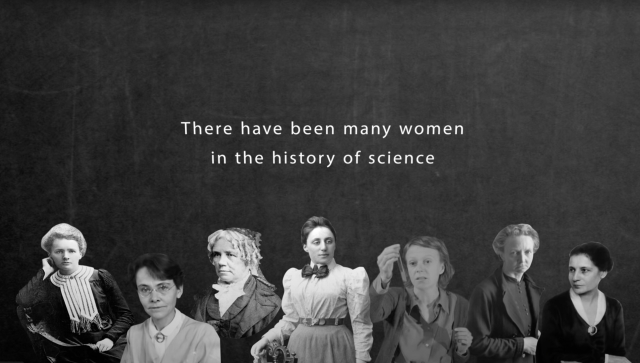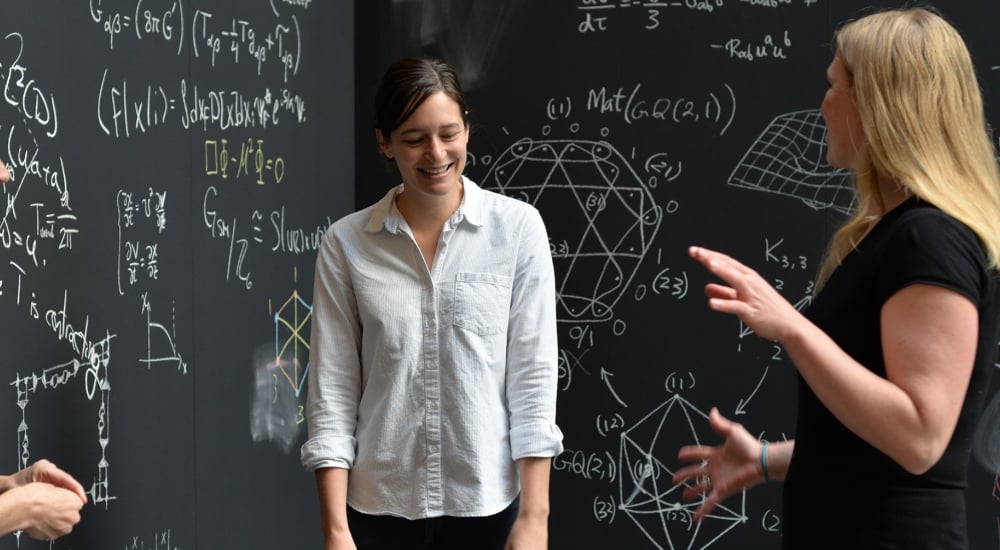These fellowships enable visiting scientists to spend up to one year under the Faculty stream or three months under the Postdoctoral stream in Perimeter’s thriving, multi-disciplinary community. The scientists gain a unique opportunity to pursue their work intensively, free of teaching and administrative duties, and develop new international peer networks.
Flexibility is a key feature of the program, and one that helps to mitigate barriers faced by under-represented groups. Perimeter works with fellows to tailor their stays, which may include teaching buyouts with their home institutions, nearby accommodation, and childcare if required.
The program is having a remarkable impact, demonstrated by publications, successful grant applications, public lectures, and ongoing collaborations that have been fostered and supported.
If you are interested in applying to be an Emmy Noether Fellow in 2025, apply ONLINE by December 15, 2024.
- Simons Emmy Noether Fellowship, Faculty stream
- Simons Emmy Noether Fellowship, Postdoctoral stream
“The Simons Emmy Noether Fellows Program made it possible to move our family halfway across the globe for a year, which is no mean feat,” says Sumati Surya, a 2016–17 Emmy Noether Fellow and associate professor at India’s Raman Research Institute. “This experience has injected great energy and inspiration for my research, which is invaluable.” – Sumati Surya
"The Simons Emmy Noether Fellowship dramatically changed the way I devise research for the future. The program is designed to boost research in physics by placing new fellows in an environment of intellectual elite and dynamic collaboration which, at the same time, takes care of the individual by helping with domestic issues and welcoming children and family. The initiative is flexible in form, deep in purpose." – Paula Mellado
"Of course, the most important aspect is that some of the best people in our field are at Perimeter. . . . Having these three months away from my home institute and temporarily away from many daily routines also helped refresh my mind. There was a long-term problem that I was in the process of solving step-by-step, on which I have already spent more than two years and was planning to spend another two years. But while at Perimeter, during the discussion with another visitor (Masahito Yamazaki), we solved this problem using a different method." – Wei Li
Meet the Emmy Noether researchers
Previous Emmy Noether fellows have come from around the world in a variety of subdisciplines. Expand the lists below to read about the fellows. Refer to our Visitors page for the most up-to-date information.
Faculty Stream:
Annabelle Bohrdt, Ludwig-Maximilians - Universitiat Muchen, Quantum Matter
Anuradha Gupta, University of Mississippi, Strong Gravity
Kristina Giesel, University of Erlangen-Nuremburg, Quantum Gravity
Layla Hormozi, Brookhaven National Laboratory, Quantum Information
Peisi Huang, University of Nebraska - Lincoln, Particle Physics
Roni Ilan, Tel Aviv University, Quantum Matter
Susmita Adhikari, Indian Institute of Science Education and Research Pune, Cosmology
Yingying Li, Chinese Academy of Sciences - Institute of High Energy Physics, Particle Physics
Postdoctoral Stream:
Ana Retore, Durham University, Quantum Fields and Strings
Beatriz Tucci, Max Planck Institute for Astrophysics (PhD); Stanford University (Postdoc - September 2025), Cosmology
Hannah Banks, University of Cambridge, Particle Physics
Jamie C McCullough, Princeton University, Cosmology
Marine De Clerck, University of Cambridge, Quantum Fields and Strings
Sucheta Majumdar, Centre de Physique Théorique Marseille, Quantum Gravity
Vania Vellucci, SISSA International School for Advanced Studies, Strong Gravity
Wanqiang Liu, University of Chicago (PhD); IFIC - Universidad de Valencia (Postdoc - September 2025), Particle Physics
- Angela Capel Cuevas, Eberhard Karls Universitat Tubingen, Mathematical Physics
- Ferah Munshi, George Mason University, Cosmology
- Cora Uhlemann, Newcastle University, Cosmology
- Zohreh Davoudi, University of Maryland, Particle Physics
- Laura Donnay, SISSA, Quantum Gravity
- Marina Marinkovic, Zurich Institute for Theoretical Physics, Mathematical Physics
- Sedighe Sajadian, Isfahan University of Technology, Cosmology
- Alice Bernamonti, University of Florence, Quantum Fields and Strings
- Laura Bernard, LUTH, Strong Gravity
- Sarah Croke, University of Glasgow, Quantum Information
- Anna Ijjas, NYU, Cosmology
- Johanna Erdmenger, string theory, University of Wuerzburg
- Lavinia Heisenberg, cosmology, ETH Zurich
- Wei Li, quantum gravity, string theory, Institute of Theoretical Physics, Chinese Academy of Sciences
- Isabel Cordero Carrion, University of Valencia, Mathematical Physics
- Urbasi Sinha, Raman Research Institute, Quantum Information
- Karen Yeats, University of Waterloo, Mathematical Physics
- Maria Elena Tejeda Yeomans, University of Colima, Mexico, Quantum Fields and Strings; Particle Physics
- Céline Boehm, cosmology, particle physics and astrophysics, Durham University
- Radja Boughezal, particle physics, Argonne National Laboratory
- Fiona Burnell, condensed matter, University of Minnesota
- Olalla Castro Alvaredo, quantum field theory, City University of London
- Alejandra Castro, quantum gravity, University of Amsterdam
- Cecilia Chirenti, strong gravity, Universidade Federal do ABC in Brazil
- Gemma De las Cuevas, quantum information and condensed matter, University of Innsbruck
- Orit Davidovich, mathematics, Northwestern University
- Emanuela Dimastrogiovanni, cosmology, Case Western Reserve University
- Barbara Drossel, condensed matter, Technische Universitat Darmstadt
- Astrid Eichhorn, quantum gravity, University of Southern Denmark
- Valentina Forini, City, University of London
- Ling-Yan Hung, Fudan University - Physics Department
- Karen Livesey, University of Newcastle
- Katherine (Katie) Mack, astroparticle physicist, North Carolina State University
- Paula Mellado, condensed matter, Adolfo Ibáñez University
- Catherine Meusburger, quantum gravity, Friedrich-Alexander University Erlangen-Nürnberg
- Monika Mościbrodzka, black holes, strong gravity, Department of Astrophysics at Radboud University (visit postponed)
- Christine Muschik, quantum information, University of Waterloo - Institute for Quantum Computing (IQC)
- Belén Paredes, condensed matter, Ludwig-Maximilians-University (LMU), Munich
- Sara Pasquetti, interface of mathematics and physics, University of Surrey
- Sylvie Paycha, mathematics, physics, Department of Mathematics at the University of Potsdam
- Catherine Pépin, condensed matter, Institut de Physique Théorique - CEA-Saclay
- Natalia Perkins, quantum matter, University of Minnesota - School of Physics & Astronomy
- Katarzyna Rejzner, mathematical physics, University of York
- Claudia de Rham, cosmology, Imperial College, London
- Rachel Rosen, quantum field theory, Columbia University
- Mairi Sakellariadou, cosmology, King’s College London
- Didina Serban, quantum fields and strings, Institut de Physique Théorique - CEA Saclay
- Phiala Shanahan, particle physics, Massachusetts Institute of Technology (MIT) - Department of Physics
- Sarah Shandera, cosmology, Penn State
- Sumati Surya, quantum gravity,Raman Research Institute
- Sherry Suyu, cosmology, Max Planck Institute for Astrophysics (MPA)
- Silke Weinfurtner, quantum gravity, Quantum Gravity Laboratory, University of Nottingham
- Yaping Yang, integrable systems, University of Melbourne Yaping Yang
- Bei Zeng, quantum entanglement and quantum information, University of Guelph
- Sylvie Paycha, Universität Potsdam
- Lavinia Heisenberg, ETH Zurich - Institute for Theoretical Physics, Cosmology
- Urbasi Sinha, Raman Research Institute, Quantum Information
- Alice Bernamonti, Università degli Studi di Firenze (UniFl), Quantum Fields and Strings
- Anna Ijjas, New York University (NYU), Cosmology
- Lara Anderson, Virginia Polytechnic Institute and State University - Department of Physics, Quantum Fields and Strings
- Karen Yeats, University of Waterloo - Department of Combinatorics and Optimization, Mathematical Physics
- Maxence Corman, Max Planck Institute for Gravitational Physics, Strong Gravity
- Renata Ferrero, Friedrich-Alexander Universität Erlangen Nürnberg, Quantum Gravity
- Yasaman Yazdi, Dublin Institute for Advanced Studies, Quantum Gravity
- Elena Pinetti, Fermilab, Particle Physics
- Maria Mylova, KAVLI-IPMU, Cosmology
- Marija Tomasevic, University of Amsterdam, Quantum Fields and Strings
- Julia Saskia Wildeboer, BNL, Quantum Matter
- Hae-Young Kee, University of Toronto , Quantum Matter
- Masha Baryakhtar, University of Washington, Particle Physics
- Seyda Ipek, Carleton University, Particle Physics
- Fereshteh Rajabi, McMaster University, Cosmology
- Camille Avestruz, University of Michigan, Cosmology
- Lara Arielle Phillips, University of Notre Dame, Cosmology
Emmy Noether Fellows are supported by the Simons Foundation.
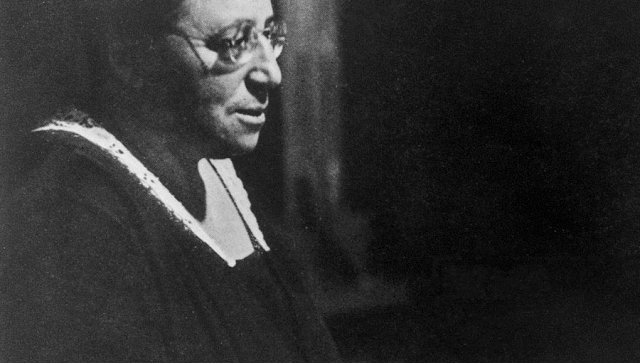
Who was Emmy Noether?
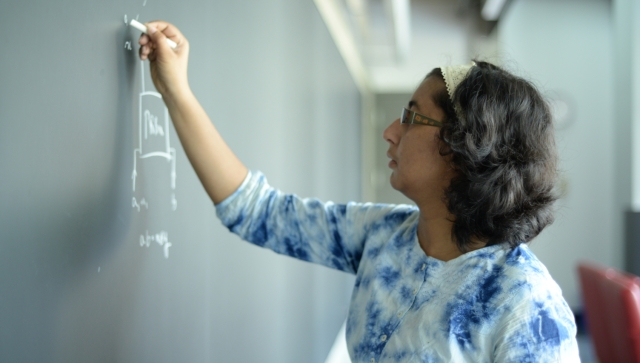
Perimeter's Strategic Plan for EDI
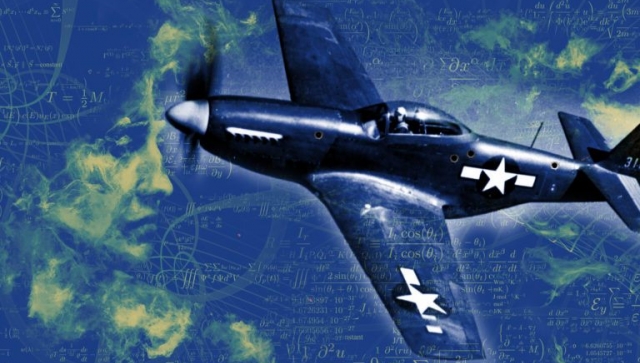
Why women leave physics
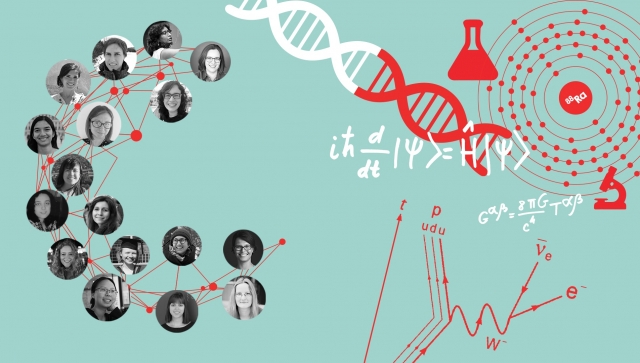
What is it like to be a woman in physics?
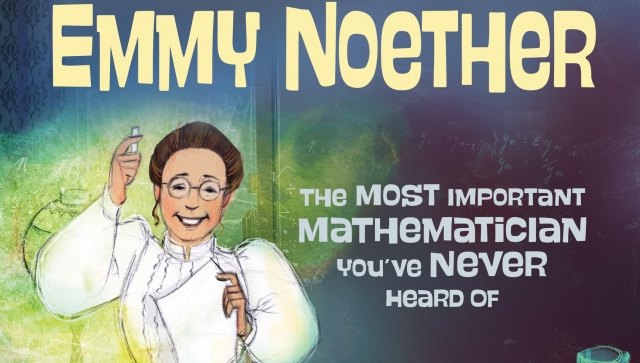
The most important mathematician you’ve never heard of
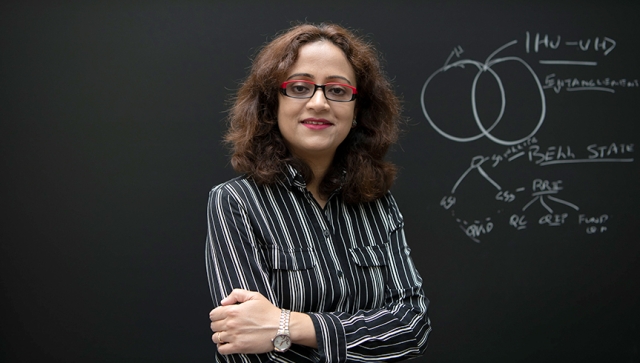
Sparks of discovery at the junction between theory and experiment
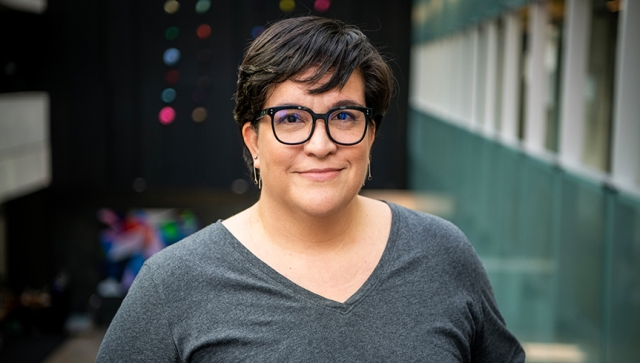
The universe before atoms
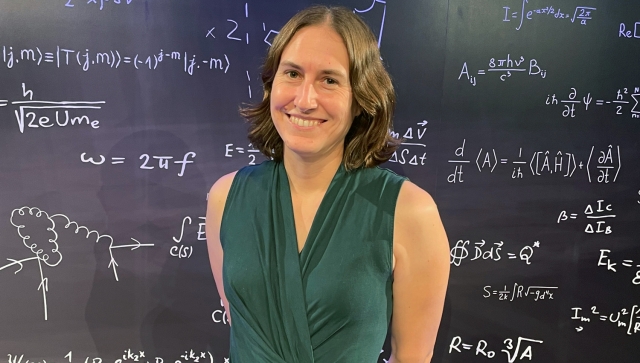
Podcast episode: Katie Mack on the end of it all – and new beginnings
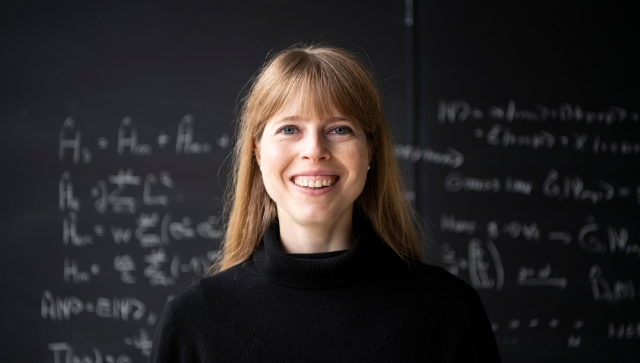
People of PI: Christine Muschik enjoys the best of both worlds
People of PI: Claudia de Rham, unstuck by gravity
